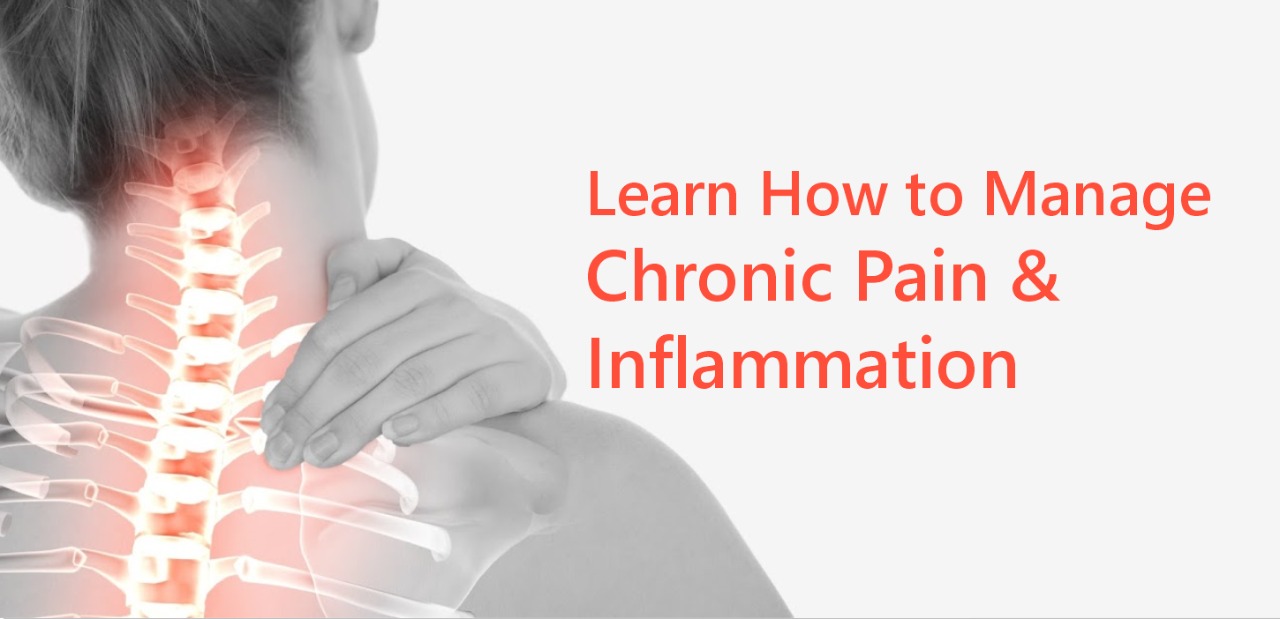

Chronic pain can arise as a result of an injury or a medical condition. Healthcare professionals define chronic pain as pain that lasts longer than three months or exceeds the normal recovery time for the underlying ailment or damage.
Chronic pain can have a detrimental effect on every aspect of a person's life, from job and social interactions to sleep and mental health and often needs a well-curated and customized disease management program. Read more about chronic pain.
This blog discusses basic pain management, as well as several ways for relieving pain and its efficacy. But before you practise any of these, Consult a Doctor with Assurance to enrol in an effective and affordable disease management program.
Is chronic pain common?
According to the National centre for disease control (NCDC), around 20% of adults had chronic pain in 2016, while 8% had severe chronic pain.
The Global Burden of Disease Study in 2017, reported that pain and pain-related disorders are the largest cause of disability globally, and the number of patients suffering from chronic pain keeps increasing.
Chronic pain is associated with a variety of physical and mental health concerns, including the following:
- Depression
- Sleep problems.
- Social isolation
- Excessive drug use
What does pain management include?
Pain management is a word that refers to approaches for reducing and controlling the amount of pain that an individual suffers over time.
There are numerous methods for managing pain, and not all of them involve medication.
Numerous physical therapies, including physical therapy, hot and cold therapy, massage, and acupuncture, can alleviate pain.
Therapeutic use of heat and cold
- The use of hot and cold treatment to relieve pain is a widespread and safe approach.
- Heat can aid in muscle relaxation and blood vessel dilation. Additionally, it can aid in the healing process following an accident.
- Cold therapy decreases blood flow and inflammation, both of which contribute to pain. It frequently entails wrapping an ice pack in a towel and applying it to the skin.
Massage
- Massage is a technique for manipulating soft tissues. Individuals may benefit from this practice when combined with other forms of pain management, such as physical therapy and medication.
- Massage advantages include the following: relaxation • enhanced flexibility • decreased inflammation • improved posture • increased circulation • less stiffness.
- Massage may be beneficial for lower back discomfort, according to a 2007 review. However, there is conflicting evidence on its usefulness for various types of chronic pain.
Orthopaedic Treatment
- Physical therapy is a series of exercises designed to strengthen and stretch muscles and joints. In addition, it can relieve pain throughout the body, albeit the specific ways differ according to body area.
- Therapeutic exercise may offer long-term advantages for persons suffering from chronic pain, including assisting them in coping.
- Massage, fitness programmes, and red light treatment are all possible techniques.
Acupuncture
- Acupuncture is a technique in which a practitioner inserts small needles into the skin at certain locations on the body. No, it is not a blood test!
- According to the National Center for Complementary and Integrative Health, data suggests that this practice may aid individuals in managing specific types of pain.
- This includes temporary relief of lower back, neck, knee, and osteoarthritis pain. However, there is scant evidence that it is effective over time.
- Acupuncture is said to have the following benefits: • pain reduction • decreased inflammation • relaxation • alleviation of muscle spasms
- When conducted by trained practitioners using sterilised needles, acupuncture is generally considered safe.
Yoga
- Yoga strives to relax, strengthen, and maintain the body's flexibility through stretching, with specialised poses concentrating on certain body parts.
- A 2010 study demonstrated yoga's benefits on chronic pain; while it did not alleviate participants' pain, it did assist them in coping and gave them a greater sense of control over how their pain affected their daily lives.
- However, some research has discovered that yoga is excellent for relieving pain.
- Yoga is a safe and accessible method of pain management that may be practised at home, via internet videos, or in a group class led by an instructor.
Relaxation Techniques for Chronic Pain are as Follows:
- Deep breathing techniques: Methods of slow and relaxed breathing, such as box breathing, aid in the release of tension.
- Progressive muscle relaxation: This technique involves tensing and relaxing each muscle group in turn, from the head to the toes, for ten seconds each. Concentrate on your breathing and avoid uncomfortable muscles.
- Peaceful your thoughts: Spend five minutes envisioning a calming scenario, such as a beautiful afternoon in nature surrounded by green trees and birdsong.
- Calming activities: Schedule time for calming hobbies such as soaking in a warm bath, reading a book, or creating something.
Medications:
There are numerous drugs available to alleviate pain. Each class and type of medicine has a unique mechanism of action, and some may be more appropriate for certain individuals than others.
NSAIDs are a class of pharmaceuticals that are used to treat inflammation and discomfort. They are available in capsules and pills, as well as skin creams and gels.
On the other hand, NSAIDs may create problems with the stomach and cardiovascular system in some people. Therefore, Consult a Doctor with Assurance before initiating NSAID medication.
Opioids are used to relieve moderate-to-severe pain and are normally only prescribed for limited periods due to their addictive potential.
Individuals should consult their physician before initiating any new medicine. This ensures that they are safe, do not exacerbate pain, and do not interact with any other medications the individual is taking.
Everyone has to deal with pain at some point in their lives because it's both a sensory and an emotional experience.
How can Assurance help me?
Assurance by NanoHealth provides Disease Management Programs, including PCOD care, infertility, Heart care, etc.
Why us? Our AI-driven initiative helps timely identification, diagnosis, and treatment by pairing you with the proper care providers.
Our disease care management programs include:
- Regular interactions with your health coach for treatment adherence.
- Periodic doctor consultations to ensure effective treatment.
- Routine blood tests to track the progress and improvements.
Book an appointment with healthcare specialists from anywhere & anytime today to get carefully assessed and curated disease management plans to headstart your healthy lifestyle. Head over to our website nhassurance.com and consult a specialist today!
